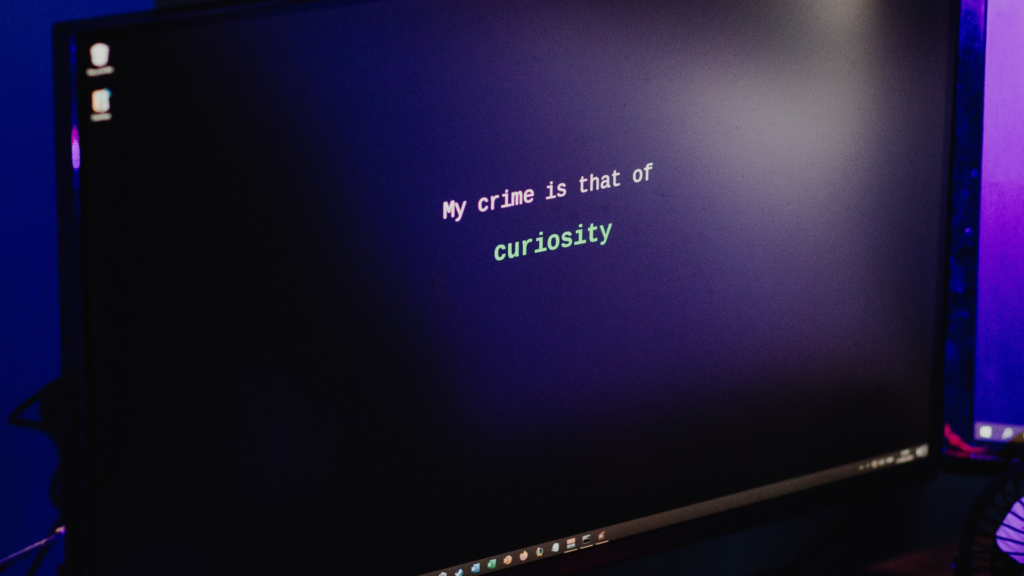You asked, and we couldn’t wait to answer. Here is a comprehensive guide on how to become an ethical hacker.

Learning cyber security skills can be tough, and learning how to become an ethical hacker is even tougher! It takes real determination and patience. Most of all, to learn these skills is why most try and then move on to something else. However, those who make it love it! The cybersecurity sector is vast and complex.
Those who want to stay above the rest educate themselves properly. Many resources are available on the internet related to hacking, cracking, phishing, etc. But only a few make it as the learning process can be overwhelming. But once you get by the initial learning phase, every small nitty-gritty starts to make sense and you’ll understand how to become an ethical hacker.
Table of Contents
What is an ethical hacker?
The need to become an ethical hacker
How to become an Ethical Hacker: 12 Steps
Step1: Learn to Program
Step 2: Learn How to Administer, Manage, and Secure a Network
Step 3: Start Hacking
Step 4: Reconnaissance
Step 5: Social Engineering
Step 6: Trojans and backdoors
Step 7: Get a Certification
Step 8: Explore vulnerabilities
Step 9: Apply for Ethical Hacking jobs
Step 10: Threat modeling
Step 11: Security Assessment
Step 12: Network Building
The 4 Stages to become an Ethical Hacker
Key concepts to remember to become an ethical hacker
EndNote
What is an ethical hacker?
Have you ever heard of a cyberattack and wondered how hackers infiltrated a seemingly secure system/website? Have you ever been intrigued by denial-of-service attacks or SQL injections? Well, if you have, then you are not alone. Many people are fascinated by the mysterious realm of hacking; however, not many know what goes on within it.
Hacking is not always about breaching a company’s security and stealing customer data or gaining access to multimedia hosted in a cloud and leaking it online. Even though ‘hacking’ is mostly regarded to have a dark and sinister connotation, there’s another, brighter side to it as well; one that tries to fight off the evil.
This type of hacking is known as ethical, or white-hat hacking, and is a dream-come-true for people who are passionate about exploring hacking but don’t have a trace of malice within them. Ethical hackers do exactly what their evil counterparts do, but with the opposite intentions. Their goal is to identify and remove vulnerabilities that potential black-hat hackers could exploit, rendering the defenses of an infrastructure capable of resisting even the most sophisticated cyberattacks.

The need to become an Ethical Hacker
Our civilization wouldn’t have sustained hundreds of thousands of years if an opposing, heroic one didn’t timely emerge for every evil, calamitous force. Ethical hackers are black-hat hackers, what the Allied leaders were to the Axis dictators. With the increasing number of cyberattacks worldwide, companies realized the need to build rigorously secure systems that hackers won’t be able to penetrate. What is the best way to go about doing that? Have someone who thinks like a potential attacker (and is as equipped as one) gauge your system for you, of course!
With the demand for ethical hackers reaching astronomical heights, more and more people are trying to become certified ethical hackers. The job pays well, is interesting, and most importantly, you get to be a hacker; what more could you possibly ask for?
How to become an Ethical Hacker: 12 Steps
It takes a lot of courage and motive to jump into an action-based career in front of the computer. Being an ethical hacker will expose you to the greatest cyber threats humankind has ever seen. Let’s break down the sections of becoming an ethical hacker with a few critical points. We will also pull out our resource guide to send you in the right direction.
Step1: Learn to Program
To start as a hacker, you need to learn to program. You can either get a degree in computer science or take a few online courses. You can also kickstart your career in IT by getting a certification, like the CompTIA A+ certification. Once you know the basics of computer programming, you can start dabbling around in any programming language of your choice (e.g., C++, Java, Python, PHP, etc.)
It would be best if you also studied website development extensively. Much of hacking knowledge comes when you know how the stuff is developed. Familiarize yourself with markup, scripting, and backend programming languages like HTML, JavaScript, PHP, Python, Java, C++, Ruby, C#, etc.
Learning about cryptographic techniques like encryption, hashing, HMACs, digital certificates, and other pertinent.
Step 2: Learn How to Administer, Manage, and Secure a Network
To be a good ethical hacker, you must be ridiculously good at networking. You would have learned a thing or two about networks while programming, but now you need to start obsessing about them. You can get the CCENT and Network+ certifications which will equip you with the fundamentals and the advanced concepts relevant to network planning, management, administration, and security.
You should be able to know the different transport layer protocols and how encryption can help secure data in transit. You should also know in-depth how data gets exchanged between the OSI model’s layers (network, transport, application).
You should be able to land a job as a network/support engineer now. Your tasks will include installing firewalls, implementing NAT, defining access control lists, installing anti-virus software, managing updates, performing periodic network monitoring, etc.
Step 3: Start Hacking
Ready to get your hands dirty? You’ll never understand how things work if you never start. Reading blogs and articles is great but practicing alongside will give you more hands-on experience. We are here to guide you and it is up to you to use them properly. Every mind works differently, and most of the time, practicing alongside reading helps a lot. We are not your university professors so there is no strict homework. You can either read the article and learn some stuff or you can read the article and do a proper follow-up. Most talented personnel in the field started with hands-on practicing and followed guides, tutorials, and mentors. We’d like to put ourselves in the mentor’s shoes and give you a heads up.
Step 4: Reconnaissance
Reconnaissance is an umbrella term that encompasses concepts like footprinting, scanning, and enumeration. You start by scanning the networks and identifying live hosts, open ports, and running operating systems and services. This allows you to prepare yourself for the attack. Explore tools like Nmap, Nessus, and OpenVAS.
Step 5: Social Engineering
This involves using your social and technical skills to manipulate a company’s employees or end-users to retrieve sensitive system information. You can do this by sending phishing emails, creating a copy of their employee card, or using any other avenue that might appear.
Step 6: Trojans and backdoors
Malicious software allows a hacker to execute commands on a victim’s machine or transfer data remotely.
Nowadays, most of the hacking is done via tools. You should gain hands-on experience with Wireshark, Kali Linux, John the Ripper, THC Hydra, and other famous tools.
Step 7: Get a Certification
The last logical step in becoming an ethical hacker is becoming certified. There are plenty of certifications that you can get, but none beats the Certified Ethical Hacker (CEH) program in credibility and prevalence. You need a few years of demonstrable information security experience to qualify for this certification. Once you are certified, you will know everything there’s to know about becoming an ethical hacker.
Step 8: Explore vulnerabilities
Once you pass the above steps, it is safe to say that your skills are now unmatched, and you already know what you’re good at. By good at, we don’t necessarily mean good at hacking but in which ethical hacking job brings you the most pleasure. If you’re not having fun doing what you do, chances are your skills will be capped. And it will haunt you as you dive deep. If you already know your goal, which you should, you can start exploring vulnerabilities.
Vulnerability assessment is used to identify, quantity, and rank vulnerabilities of a system. Working on these projects for a long time should give you a good idea. Vulnerability threat assessment (VTA) is a threat-based assessment that takes in scheduling scanning of systems. They may be critical infrastructure or organizational vulnerabilities welcoming ethical hackers to exploit them and suggest fixes. This would not only be a good learning curve but will also benefit you financially. Usually, companies are willing to pay money if you can recommend potential fixes before exploiting them. Whether small or large, organizations require ethical hackers to perform regular VTA.
Step 9: Apply for Ethical Hacking jobs
There are many titles for the ethical hacking post. As ethical hackers come in all shapes and sizes, many enter the field as mid-level white-hat hackers. Some of the most demanding ethical hacking jobs are a penetration tester, vulnerability assessor, and security consultant. At Hackingloops, we already have articles covering some of these topics in-depth. So, let’s shortly get a reminder:
- Penetration Tester:
Penetration tester always stays within the bounds of law and specializes in computer network and vulnerability discovery. Simulating cyberattacks, breaching data like a malicious hacker, and reporting promptly to the corporation so that they can strengthen the vulnerability against bad guys and keep user data protected.
- Vulnerability Assessor:
On the other hand, the vulnerability assessor loves picking systems apart. For many, it is a lucrative position as you scan applications and systems to find vulnerabilities and critical research flaws and comprehensively present the findings professionally with a business-focused recommendation. It lets you capitalize on financial success along with helping the tech community.
- Security Consultant:
An ethical hacker with years of experience can easily become a security consultant. You can either open your cybersecurity agency or try the freelance work ethic. You’ll have a wide array of clients asking for unique recommendations, or as the agency’s brain, your words will have the final saying. Analyzing a wide array of cyber threats, running tests, searching for breaches, and recommending fixes are part of being a security consultant.
Step 10: Threat modeling
Threat modeling is optimizing network security by locating vulnerabilities. Many interactive countermeasures go within, such as developing countermeasures, identifying objectives, and mitigating the effects of cyber-attacks. IT systems are always exposed to threats, and it takes continuous threat modeling as the building block of ethical hacking workflow.
Step 11: Security Assessment
A security assessment will take your ethical hacking learning to the next level. As a red team leader, you will often get assigned tasks such as providing a complete report on vulnerabilities, risk measurement, organizational security preparedness, etc. Security assessment helps in future planning, additional security implementation, enhanced training, and other similar variables.
Step 12: Network Building
As your career starts to grow along with the cybersecurity industry, your professional network will grow alongside you. Colleagues, students attending the same course, or people you meet while completing various assignments will help you get to know many people working in the same field. Colleagues, employers, and educators will help you build the initial network.

The 4 Stages to become an Ethical hacker
As we learn how to become an ethical hackers, we should also educate ourselves on the stages of ethical hacking. You may think, is there a difference? Of course, there is. As the sector is critical, a proper understanding of steps and judging your steps is essential. Let’s discuss the four stages of Ethical hacking. Patience is a skill you must practice going through all the steps and have a successful ethical hacking career because you can’t start a high-paying job at the start. The 4 stages of becoming ethical hackers are mentioned below:
Stage 1: Just starting out to become an ethical hacker
There are many certification programs or, even better, a computer science degree to get you through the initial stages of becoming cyber support. Courses such as CompTIA or our in-house courses can also greatly benefit. Understanding computer peripherals, networking, and system administration are the steps starting. You can also take CCNA or Coursera courses when starting as a helping hand.
Stage 2: Network support
The second stage is network support, where a qualification gets you to the next step of the ethical hacking journey. In this step, start to grasp ideas like network monitoring, updating, installing security programs, testing system vulnerabilities, etc. Unlike other stages, this one has the most field working experience involved. So don’t hesitate to jump into any opportunities you get. A network support engineer with Network+, CCNA certified personnel, may expect an average salary of $44,000 per year.
Stage 3: Network Engineer
A jump to network engineer may increase your average salary to the $60,000-65,000 range, which is quite lucrative. In this stage, you’ll not only be fixing network-related stuff but building and designing them. You should be able to route networks more safely with a proper supporting plan. Security+, CISSP, TICSA, or a membership to Hackingloops will teach you a ton about this stage.
Stage 4: Working in Information Security
This is a major step in your ethical hacking career, and you’ll be dealing with very complex problems for the first time. You’ll earn a lot more than the previous steps we mentioned, as the skills are now honed to greatness. You now understand every concept and have a proper diagram of what to learn next to benefit your career. You may get the CEH certification for peace of mind and to stay updated with updated teachings. This concludes the 4 steps to becoming an ethical hacker.

Key concepts to remember to become an ethical hacker
Four key protocols to follow to have a successful ethical hacking career are mentioned below.
Stay legal: obtaining permission or proper approval is necessary to stay legal. It has to be done before vulnerability testing an organization’s cyber strength.
Define the scope: The scope should be clear so the work remains legal and doesn’t hurt organizational workflow. Otherwise, it may hurt you down the line career-wise.
Report vulnerabilities: Once vulnerabilities are found, report them. It will not only give you credit but will empower your ability as an ethical hacker.
Respect data sensitivity: Data is sensitive, and we see regulations being reassessed frequently. Check with your organization if it needs a non-disclosure agreement alongside signing terms of services papers.
EndNote
Becoming an ethical hacker won’t happen overnight, but if you have the passion for it, you can build the skill set within a few years. The learning path mentioned above will ensure that you get on the right track and stay there until you have reached your goal of becoming an ethical hacker.
Even though your methods of practicing can be restricted at first, once you start to play by the rules and fight cybercrimes, the adrenaline and greater skillset will take your career to a new level. We hope our cover on becoming an ethical hacker will come in handy. Feel free to use us for future reference.

Leave a Reply